Cellular Function
Cellular function refers to the processes and activities that occur within a cell, allowing it to carry out essential functions to maintain life. These functions include metabolism, cell growth, cell division, and the regulation of genetic information. Understanding cellular function is crucial for understanding how living organisms function and for advancements in fields such as medicine and biotechnology.
Key Concepts
- Cellular Metabolism: The set of chemical reactions that occur within a cell to maintain life. This includes processes such as energy production, nutrient breakdown, and waste elimination.
- Cell Growth and Division: The processes through which cells increase in size and divide to form new cells. This is essential for development, tissue repair, and reproduction.
- Genetic Regulation: The mechanisms that control the expression of genes within a cell, affecting its function and characteristics.
- Cellular Communication: The ways in which cells interact and communicate with each other, often through chemical signals, to coordinate activities and respond to the environment.
Study Guide
To understand cellular function, it's important to explore the following topics:
- Cellular Organelles: Learn about the different organelles within a cell, such as the mitochondria, endoplasmic reticulum, and nucleus, and their roles in cellular function.
- Metabolic Pathways: Study the key metabolic processes, including cellular respiration, photosynthesis, and the breakdown of macromolecules such as carbohydrates, proteins, and lipids.
- Cell Cycle: Understand the stages of the cell cycle, including interphase, mitosis, and cytokinesis, and the regulation of cell growth and division.
- Gene Expression: Explore how genes are transcribed and translated to produce proteins, and how gene regulation influences cellular function and specialization.
- Cell Signaling: Investigate the mechanisms of cell signaling, including signaling molecules, receptors, and intracellular pathways that mediate responses to extracellular signals.
By mastering these concepts, you will develop a comprehensive understanding of cellular function and its significance in the broader context of biology and life sciences.
.◂Science Worksheets and Study Guides Seventh Grade. Cell Reproduction
Study Guide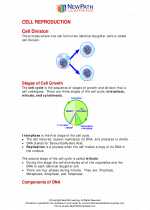 Cell Reproduction
Cell Reproduction  Activity Lesson
Activity Lesson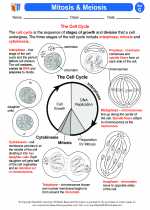 Mitosis & Meiosis
Mitosis & Meiosis  Worksheet/Answer key
Worksheet/Answer key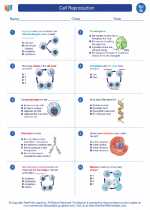 Cell Reproduction
Cell Reproduction  Worksheet/Answer key
Worksheet/Answer key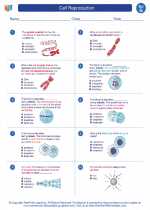 Cell Reproduction
Cell Reproduction  Worksheet/Answer key
Worksheet/Answer key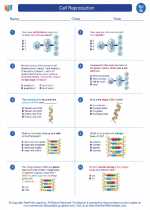 Cell Reproduction
Cell Reproduction  Vocabulary/Answer key
Vocabulary/Answer key Cell Reproduction
Cell Reproduction  Vocabulary/Answer key
Vocabulary/Answer key Cell Reproduction
Cell Reproduction  Vocabulary/Answer key
Vocabulary/Answer key Cell Reproduction
Cell Reproduction  Vocabulary/Answer key
Vocabulary/Answer key Cell Reproduction
Cell Reproduction  Vocabulary/Answer key
Vocabulary/Answer key Cell Reproduction
Cell Reproduction  Vocabulary/Answer key
Vocabulary/Answer key Cell Reproduction
Cell Reproduction  Vocabulary/Answer key
Vocabulary/Answer key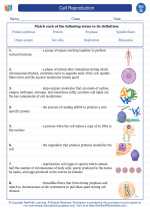 Cell Reproduction
Cell Reproduction  Vocabulary/Answer key
Vocabulary/Answer key Cell Reproduction
Cell Reproduction 

 Activity Lesson
Activity Lesson
 Worksheet/Answer key
Worksheet/Answer key
 Worksheet/Answer key
Worksheet/Answer key
 Worksheet/Answer key
Worksheet/Answer key
 Vocabulary/Answer key
Vocabulary/Answer key
 Vocabulary/Answer key
Vocabulary/Answer key
 Vocabulary/Answer key
Vocabulary/Answer key
 Vocabulary/Answer key
Vocabulary/Answer key
 Vocabulary/Answer key
Vocabulary/Answer key
 Vocabulary/Answer key
Vocabulary/Answer key
 Vocabulary/Answer key
Vocabulary/Answer key
 Vocabulary/Answer key
Vocabulary/Answer key

The resources above cover the following skills:
LIFE SCIENCE
From Molecules to Organisms: Structures and Processes
Gather and synthesize information to explain how prokaryotic and eukaryotic cells differ in structure and function, including the methods of asexual and sexual reproduction.